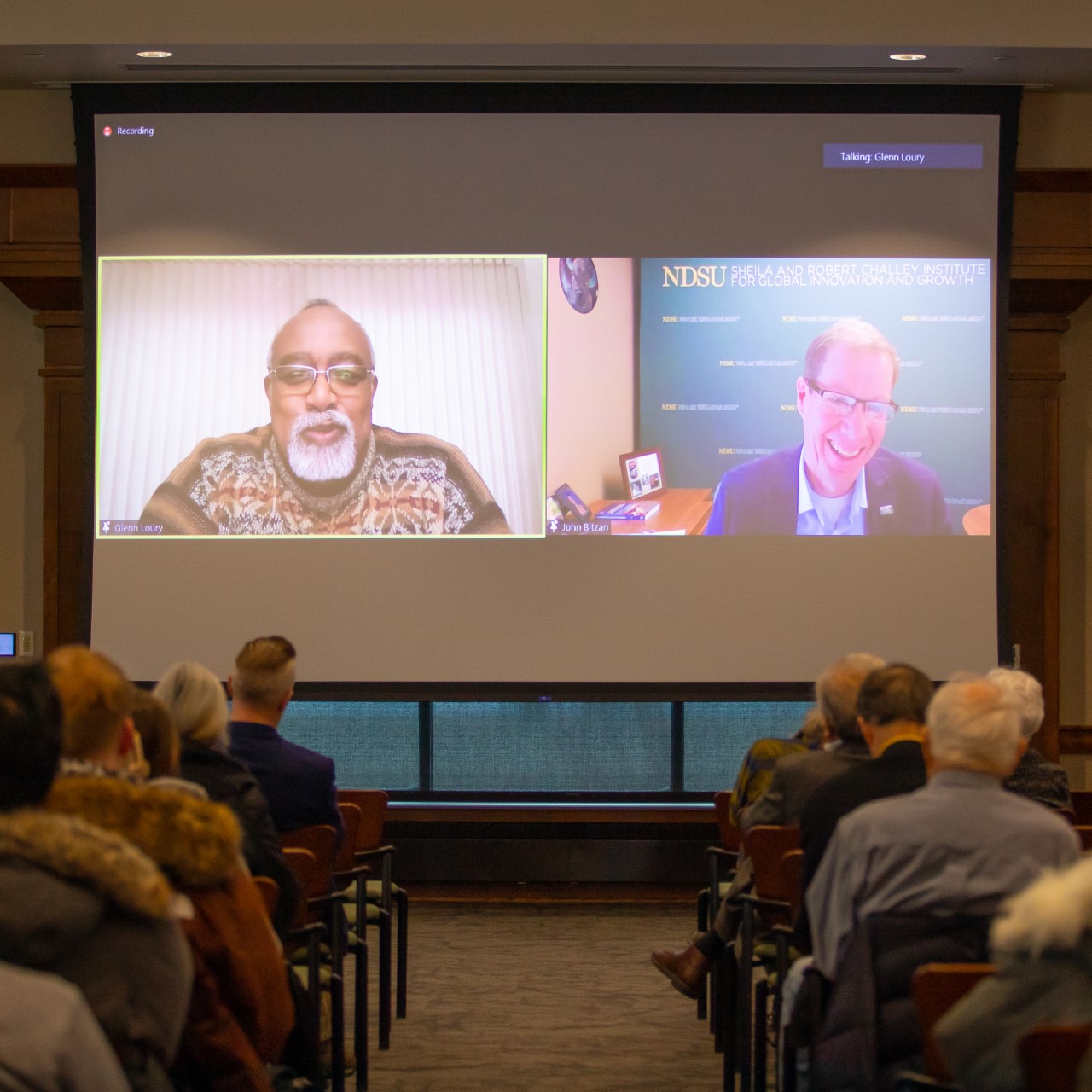As part of the distinguished speakers series of the NDSU Challey Institute, Glenn C. Loury discussed his research and writing career on topics such as race and inequality, as well as his personal life. Academically, Loury is the Merton P. Stoltz professor of the social sciences and professor of economics at Brown University. In addition, the podcast “The Glenn Show,” which discusses economics and social topics, is hosted by him.
Although he would eventually become an accomplished professor and researcher, this success was not apparent in his youth. As a teenager and young adult, he faced many challenges. “I was 16 years old, and I wasn’t really mature in my outlook toward life,” said Loury. “My girlfriend got pregnant, and I ended up dropping out of college and not completing a degree.”
Later, after having a second child and working full-time, he also attended community college. Success there rewarded him with a full scholarship to Northwestern University.
Upon attending Northwestern, “it was like a whole new world opening up to me, and for the first time, I was really serious about my college studies,” Loury said. He would go on to make the dean’s list while taking graduate-level economics and mathematics courses, working full-time, and raising his two children.
“It was definitely a tough, a tough period, but I was in love with what I was doing.” Attributing the success as well to a lot of coffee, 4 to 5 hours of sleep, and that he was “keen to show my father, who was really annoyed with me, for you know, messing up my life as he saw it.” However, all of this came at a cost, as he “didn’t see much of his kids.”
Loury would go on to become the first black person to receive tenure in the economics department at Harvard University in 1982. “I’m sure being black was a part of the reason that the appointment was extended to me,” said Loury.
Reinforcing this decision, he noted that the appointment was helpful in breaking down stereotypes. Loury shared one story about a time he was the keynote speaker and looking for directions and the greeter of the event ignored him. “I could barely get her attention because she doesn’t realize that I’m really an important person she thinks I’ve just, you know, come to deliver the groceries or something.”
However, throughout the years, his stance on affirmative action and similar policies would change. For most of his life, he supported it but now opposes it.
Loury was also one of the earliest pioneers of the concept of social capital. His research looks into the level of relationships with family, friends, and community and how it perpetuates racial economic inequality. Adding, how discrimination in the past is continued by persisting lower levels of social and human capital.
He also shared remarks on the controversial “1619 Project” by the New York Times. He found it too negative and focused too much on suppression and domination. That it is a “story of a failure to live up to the ideals of its founding and a perpetuation of a white male-dominated, capitalist, anti-native, bandit society.” Loury prefers to “emphasize the triumphs and the successes that characterize African American history.”
In addition, free speech and open discourse are strong values that he commits to in both his academic and public work. Highlighting a course he developed and taught in which the students discuss the role of free inquiry with the works of diverse thinkers such as Plato, John Stuart Mill, and George Orwell. On “The Glenn Show,” he is not afraid and listens in good faith to contrary opinions, such as Marxist economist Dr. Richard D. Wolff.
Throughout the full 90 minutes, he would discuss many other topics. The full recorded interview can be found online at the Menard Family Distinguished Speaker Series website.
